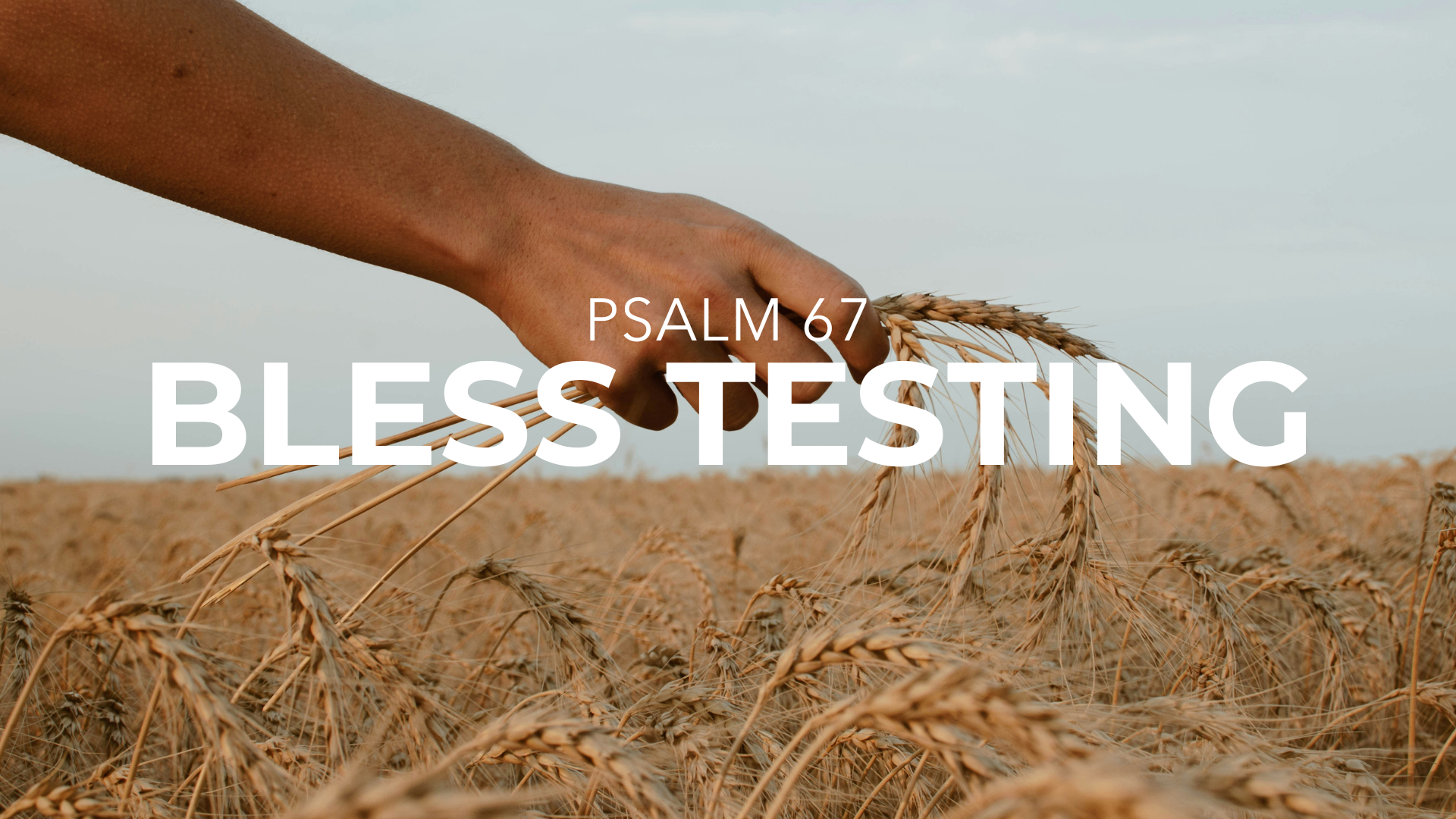
Russia! Russia! Russia? (Ezekiel 38-39)
Some are calling it “the drone war.”
From drones that fit in the palm of your hand to those weighing more than 1000 pounds, Ukraine has built and acquired a diverse fleet of remotely piloted aircraft.
Russia has countered old skool. The Wall Street Journal posted an article titled, Russia Trots Out It’s Newest Weapon in Ukraine: Horses
Drones have a difficult time identifying cavalry, and they do well in difficult terrain.
Ezekiel 38-39 is the account of an End Times invasion of Israel by a confederation of nations on horseback.
- This is not a parable inviting us to discover its deeper spiritual meaning.
- Neither is it a failed attempt by Ezekiel to describe future technology because of his limited vocabulary.
Ezekiel saw horses because the enemies of God and Israel will attack on horseback.
Horses are the least of the controversies we will encounter. The participating nations, and the timing, are also undecided. According to Dr. Arnold Fruchtenbaum, “These chapters constitute some of the most difficult (if not the most difficult) prophecies in the entire Bible to interpret with confidence. We cannot be dogmatic and commentaries that are dogmatic are not honestly interpreting these passages.”
No use keeping us in the dark. I will un-dogmatically point out things that seem to very strongly indicate that this conflict belongs at the very end of the Millennial Kingdom, before the New Heavens and the New Earth.
Ezk 38:1 Now the word of the LORD came to me, saying,
Ezk 38:2 “Son of man, set your face against Gog, of the land of Magog, the prince of Rosh, Meshech, and Tubal, and prophesy against him,
Ezk 38:3 and say, ‘Thus says the Lord GOD: “Behold, I am against you, O Gog, the prince of Rosh, Meshech, and Tubal.
Ezk 38:4 I will turn you around, put hooks into your jaws, and lead you out, with all your army, horses, and horsemen, all splendidly clothed, a great company with bucklers and shields, all of them handling swords.
Ezk 38:5 Persia, Ethiopia, and Libya are with them, all of them with shield and helmet;
Ezk 38:6 Gomer and all its troops; the house of Togarmah from the far north and all its troops – many people are with you.
“Gog” is likely a title, e.g., Pharaoh or Czar. After the dust of discussion settles, we are left with the following best identification of these nations:
- Magog was the region north of Israel, at that time the home of a people called Scythians.
- Rosh, Meshech & Tubal are regions of Turkey.
- Persia is the ancient name for Iran.
- Ethiopia, Libya, Gomer & [Goober] Togarmah are regions in North Africa.
Wait… Aren’t “Rosh,” “Meshech,” & “Tubal,” respectively, Russia, Moscow, and Tobolsk? We can only say, “Maybe.” Their identification with Russia and its cities relies mainly on pronunciation:
- “Rosh” sounds like Russia, but the name didn’t exist until the 11th century AD, making the connection unlikely.
- The same is true of “Meshech” and “Tubal.”
It’s our own Russia! Russia! Russia! hoax.
About this point in our study it might be that some of you are thinking, “This is really interesting, but I came here today for inspiration, not information. I need to hear from the Lord that He will bear the burdens I cast upon Him, that are crushing me.
Let’s pause and have a devotional moment involving hooks, Satan, and Job.
God will put “hooks” in the jaws of the invaders. That means they will be headed somewhere else, but the Lord draws them to Israel. Their foiled attack will reveal His glory to the world.
In the Book of Job, Satan had been going somewhere, “going to and fro on the earth, and… walking back and forth on it” (1:7). He was drawn to Heaven by the LORD on “a day when the sons of God came to present themselves before the LORD” (1:6).
The LORD pointed-out Job. Satan challenged the LORD, claiming Job was faithful only because God blessed him. God allowed Satan to test Job. He passed the test. Something similar happened in chapter two. Again, he passed. “In all this Job did not sin nor charge God with wrong” (1:22).
God ‘hooked’ Satan. He brought the devil into a fight, saying, “Consider my servant, Job.”
- In one corner, wearing white-as-snow trunks, was a mere man, but one who believed God and was thereby justified to stand in God’s presence.
- In the other corner, wearing blood-red trunks, was the most beautiful of angels, musical in his movements.
When the bell rang the devil landed blow-after-blow. In the end, Job was still standing. He won a unanimous decision.
As for Satan, his accusations, his malevolence, his lies, his murders were, and remain, on full display. He’s a psychopath with no compassion – only pride.
Let’s say you have a situation at work. You are genuinely being mistreated, passed over, ridiculed. Our first reaction is that these things are strange and unfair. Of course they are! That’s the point. Jesus is permitting them so He can say to creatures in Heaven & on Earth, “Consider my servant, Gene.”
The LORD directly addresses the invaders:
Ezk 38:7 “Prepare yourself and be ready, you and all your companies that are gathered about you; and be a guard for them.
Ezk 38:8 After many days you will be visited. In the latter years you will come into the land of those brought back from the sword and gathered from many people on the mountains of Israel, which had long been desolate; they were brought out of the nations, and now all of them dwell safely.
If we weren’t in Ezekiel, and I asked you to identify when it could be said of Israel, “after many days,” “in the latter years,” when Jews have been “brought back” to their land, which had “long been desolate,” “all of them” “dwell[ing] safely” – I’m pretty confident you’d say it was in the Millennium. Especially when the next set of verses portrays them as even more relaxed and at peace.
Ezk 38:9 You will ascend, coming like a storm, covering the land like a cloud, you and all your troops and many peoples with you.”
Ezk 38:10 ‘Thus says the Lord GOD: “On that day it shall come to pass that thoughts will arise in your mind, and you will make an evil plan:
Ezk 38:11 You will say, ‘I will go up against a land of unwalled villages; I will go to a peaceful people, who dwell safely, all of them dwelling without walls, and having neither bars nor gates’
Ezk 38:12 to take plunder and to take [spoil], to stretch out your hand against the waste places that are again inhabited, and against a people gathered from the nations, who have acquired livestock and goods, who dwell in the midst of the land.
Israel is depicted as living a carefree, back-to-the-land agrarian life in absolute safety. This is more than confidence in the Iron Dome.
Ezk 38:13 Sheba, Dedan, the merchants of Tarshish, and all their young lions will say to you, ‘Have you come to take plunder? Have you gathered your army to take [spoil], to carry away silver and gold, to take away livestock and goods, to take great plunder?’ ” ’
Some claim Tarshish is Britain and the “young lions” its colonies, inserting the U.S. into prophecy. This reflects a geo-political bias that assumes the U.S. and Russia must feature in the End Times.
Ezk 38:14 “Therefore, son of man, prophesy and say to Gog, ‘Thus says the Lord GOD: “On that day when My people Israel [Note this] dwell safely, will you not know it?
Ezk 38:15 Then you will come from your place out of the far north, you and many peoples with you, all of them riding on horses, a great company and a mighty army. [Note: Countries also come from the west & east]
Ezk 38:16 You will come up against My people Israel like a cloud, to cover the land. It will be in the latter days that I will bring you against My land, so that the nations may know Me, when I am hallowed in you, O Gog, before their eyes.”
Ezk 38:17 Thus says the Lord GOD: “Are you he of whom I have spoken in former days by My servants the prophets of Israel, who prophesied for years in those days that I would bring you against them?
Ezk 38:18 “And it will come to pass at the same time, when Gog comes against the land of Israel,” says the Lord GOD, “that My fury will show in My face.
Ezk 38:19 For in My jealousy and in the fire of My wrath I have spoken: ‘Surely in that day there shall be a great earthquake in the land of Israel,
Ezk 38:20 so that the fish of the sea, the birds of the heavens, the beasts of the field, all creeping things that creep on the earth, and all men who are on the face of the earth shall shake at My presence. The mountains shall be thrown down, the steep places shall fall, and every wall shall fall to the ground.’
These are global effects that seem era-ending. While this maybe could be shoehorned in to the end of the Tribulation, the end of the Millennium fits better.
Ezk 38:21 I will call for a sword against Gog throughout all My mountains,” says the Lord GOD. “Every man’s sword will be against his brother.
Ezk 38:22 And I will bring him to judgment with pestilence and bloodshed; I will rain down on him, on his troops, and on the many peoples who are with him, flooding rain, great hailstones, fire, and brimstone.
Ezk 38:23 Thus I will magnify Myself and sanctify Myself, and I will be known in the eyes of many nations. Then they shall know that I am the LORD.” ’
Ezekiel’s final chapters are chronological. Chapters 36-37 show Israel as she will be at the end of the Tribulation – restored and indwelt by the Spirit. It makes sense that 38-39 occur after the Second Coming, during the Millennium – just before chapters 40-48 describe it.
Ezk 39:1 “And you, son of man, prophesy against Gog, and say, ‘Thus says the Lord GOD: “Behold, I am against you, O Gog, the prince of Rosh, Meshech, and Tubal;
Ezk 39:2 and I will turn you around and lead you on, bringing you up from the far north, and bring you against the mountains of Israel.
Ezk 39:3 Then I will knock the bow out of your left hand, and cause the arrows to fall out of your right hand.
“Bows” and “arrows” are ridiculed by critics. Their mention, however, may be the most important information in the text for determining the “when.”
Ezk 39:4 You shall fall upon the mountains of Israel, you and all your troops and the peoples who are with you; I will give you to birds of prey of every sort and to the beasts of the field to be devoured.
Ezk 39:5 You shall fall on the open field; for I have spoken,” says the Lord GOD.
Ezk 39:6 “And I will send fire on Magog and on those who live in security in the coastlands. Then they shall know that I am the LORD.
Ezk 39:7 So I will make My holy name known in the midst of My people Israel, and I will not let them profane My holy name anymore. Then the nations shall know that I am the LORD, the Holy One in Israel.
Ezk 39:8 Surely it is coming, and it shall be done,” says the Lord GOD. “This is the day of which I have spoken.
Ezk 39:9 “Then those who dwell in the cities of Israel will go out and set on fire and burn the weapons, both the shields and bucklers, the bows and arrows, the javelins and spears; and they will make fires with them for seven years.
Ezk 39:10 They will not take wood from the field nor cut down any from the forests, because they will make fires with the weapons; and they will plunder those who plundered them, and pillage those who pillaged them,” says the Lord GOD.
How do you “burn” bunker busters? We have tomahawk missiles – not tomahawks!
- Isaiah speaks of mankind beating their swords into plowshares, and their spears into pruning hooks (2:4). Weapons will not be necessary in the Millennium. There will be no WMD’s!
- The prophet Joel, however, describes a time when men will beat their plowshares into swords, and their pruning hooks into spears (3:10).
Gog & company will have to make weapons out of farm equipment.
Ezk 39:11 It will come to pass in that day that I will give Gog a burial place there in Israel, the valley of those who pass by east of the sea; and it will obstruct travelers, because there they will bury Gog and all his multitude. Therefore they will call it the Valley of Hamon Gog.
Ezk 39:12 For seven months the house of Israel will be burying them, in order to cleanse the land.
Ezk 39:13 Indeed all the people of the land will be burying, and they will gain renown for it on the day that I am glorified,” says the Lord GOD.
Ezk 39:14 “They will set apart men regularly employed, with the help of a search party, to pass through the land and bury those bodies remaining on the ground, in order to cleanse it. At the end of seven months they will make a search.
Ezk 39:15 The search party will pass through the land; and when anyone sees a man’s bone, he shall set up a marker by it, till the buriers have buried it in the Valley of Hamon Gog.
Ezk 39:16 The name of the city will also be Hamonah. Thus they shall cleanse the land.” ’
There is no biblical reason these activities could not occur at the end of the Millennium and before eternity.
Revelation chapter 20 tells us a great deal about the Millennium, especially how it ends. For one thing, Satan will be (and I quote) “Released from his prison and will go out to deceive the nations which are in the four corners of the earth, Gog and Magog, to gather them together to battle, whose number is as the sand of the sea… And fire came down from God out of heaven and devoured them” (20:7-9).
Gog and Magog? The most literal, grammatical, historical approach to this repetition is that it describes the same event but from different perspectives. There are some apparent differences in details, but none that cannot be explained.
Ezk 39:17 “And as for you, son of man, thus says the Lord GOD, ‘Speak to every sort of bird and to every beast of the field: “Assemble yourselves and come; Gather together from all sides to My sacrificial meal Which I am sacrificing for you, A great sacrificial meal on the mountains of Israel, That you may eat flesh and drink blood.
Ezk 39:18 You shall eat the flesh of the mighty, Drink the blood of the princes of the earth, Of rams and lambs, Of goats and bulls, All of them fatlings of Bashan.
Ezk 39:19 You shall eat fat till you are full, And drink blood till you are drunk, At My sacrificial meal Which I am sacrificing for you.
Ezk 39:20 You shall be filled at My table With horses and riders, With mighty men And with all the men of war,” says the Lord GOD.
Ezekiel talked to animals!
Ezk 39:21 “I will set My glory among the nations; all the nations shall see My judgment which I have executed, and My hand which I have laid on them.
Ezk 39:22 So the house of Israel shall know that I am the LORD their God from that day forward.
Ezk 39:23 The Gentiles shall know that the house of Israel went into captivity for their iniquity; because they were unfaithful to Me, therefore I hid My face from them. I gave them into the hand of their enemies, and they all fell by the sword.
Ezk 39:24 According to their uncleanness and according to their transgressions I have dealt with them, and hidden My face from them.” ’
God chose Israel to bless all nations, but His blessing depended on their being set apart to communicate His holiness. When they turned to immorality and idolatry, He scattered them in judgment. Yet through this, Gentiles would see His justice and love – and be drawn to His holiness.
Ezk 39:25 “Therefore thus says the Lord GOD: ‘Now I will bring back the captives of Jacob, and have mercy on the whole house of Israel; and I will be jealous for My holy name –
Ezk 39:26 after they have borne their shame, and all their unfaithfulness in which they were unfaithful to Me, when they dwelt[1] safely in their own land and no one made them afraid.
Ezk 39:27 When I have brought them back from the peoples and gathered them out of their enemies’ lands, and I am hallowed in them in the sight of many nations,
Ezk 39:28 then they shall know that I am the LORD their God, who sent them into captivity among the nations, but also brought them back to their land, and left none of them captive any longer.
Ezk 39:29 And I will not hide My face from them anymore; for I shall have poured out My Spirit on the house of Israel, says the Lord GOD.”
Verses 25-29 read like the modern history of Israel. They were dispersed into the nations, un-dispersed, and are in their land in unbelief.
Suggesting that Ezekiel and John (in the Revelation) are talking about the same event is not fringe or false. G.H. Pember, Arno Gaebelein, Clarence Larkin, and Craig Blaising either support it, or they acknowledge it as possible.
To end this morning, I ran across a quote that reminds us these chapters were to encourage the 6th century Jews, who had lost everything.
“Christians do not simply have a hope for the future, they have a hope that comes from the future.”
| ↑1 | “Dwelt” is translated in a future tense by many Bibles, e.g., (ISV) They’ll forget their shame and all of their unfaithfulness by which they behaved so unfaithfully toward me. They will live on their land in confidence, not in fear. |
|---|








